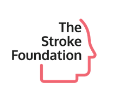Mirror Therapy During Stroke Recovery

A stroke can be a life-altering event, leaving survivors grappling with physical and emotional challenges. However, hope and innovation abound in the field of stroke rehabilitation, offering new and promising approaches to recovery. One such method is mirror therapy, a technique that has gained recognition for its potential in stroke recovery. In this article, we […]
The Role of Occupational Therapy in Stroke Recovery

Written by: Aundrea Steenblock, OTD, OTR What is an Occupational Therapist? Occupational Therapists play a vital role in rehabilitation after someone experiences a stroke. Occupational Therapy’s primary role in stroke recovery is to assist survivors to regain independence with their daily activities. Depending on the severity of the stroke, an Occupational Therapist (OT) will collaborate […]
Vision Problems

A stroke is a serious medical condition that can lead to various complications. One of these complications can be vision problems, which can significantly impact a person’s quality of life. In this article, we will discuss the different types of vision problems that can occur after a stroke and how they can be managed. Types […]
Apps for Aphasia

Aphasia is a language disorder that affects a person’s ability to communicate effectively. It can be caused by stroke, brain injury, or other neurological conditions. While aphasia can be a challenging condition to manage, there are several apps available that can help individuals with aphasia to communicate more effectively. In this blog post, we will […]
Board Games for Memory Improvement

Board games are a fantastic way to spend quality time with family and friends while also improving your cognitive abilities. One of the most significant benefits of board games is their ability to enhance memory and boost cognitive function. In this article, we’ll be discussing some of the best board games that can help improve […]
Ataxia

Ataxia is a neurological disorder characterized by lack of coordination in voluntary movements. It can result from a variety of conditions, including stroke. Stroke is a leading cause of long-term disability, affecting millions of people worldwide. In this article, we will discuss ataxia in stroke victims, its causes, symptoms, diagnosis, and treatment. Causes of Ataxia […]
Survivor’s Guilt

Stroke is a serious and life-altering medical event that affects millions of people worldwide. Survivors of stroke often experience a wide range of emotions, including a feeling of guilt. This feeling, commonly known as survivor’s guilt, is a psychological phenomenon that is often experienced by those who survive a traumatic event while others do not. […]
Why Repetitions Matter

A stroke is a neurological condition that can have severe consequences, such as paralysis or weakness on one side of the body. Repetitions on the affected side are crucial in stroke rehabilitation because they help to retrain the brain and body to work together to perform movements that were once easy but now may be […]
Emotional Changes After a Stroke

A stroke is a life-changing event that can cause a range of emotional changes. It’s normal to experience feelings of sadness, anxiety, anger, and frustration after a stroke. These emotions can be difficult to cope with, but it’s important to remember that you’re not alone. In this blog post, we’ll explore emotional changes after a […]
Meditation and stroke recovery

Meditation can be daunting, but with the right tools it can change your life. Simple daily meditations can over time change the physiology, in other words the physical structure, of the brain in many ways. Specific parts of the brain, such as the cingulate cortex, are responsible for attention, emotional regulation, and mental flexibility. The […]

